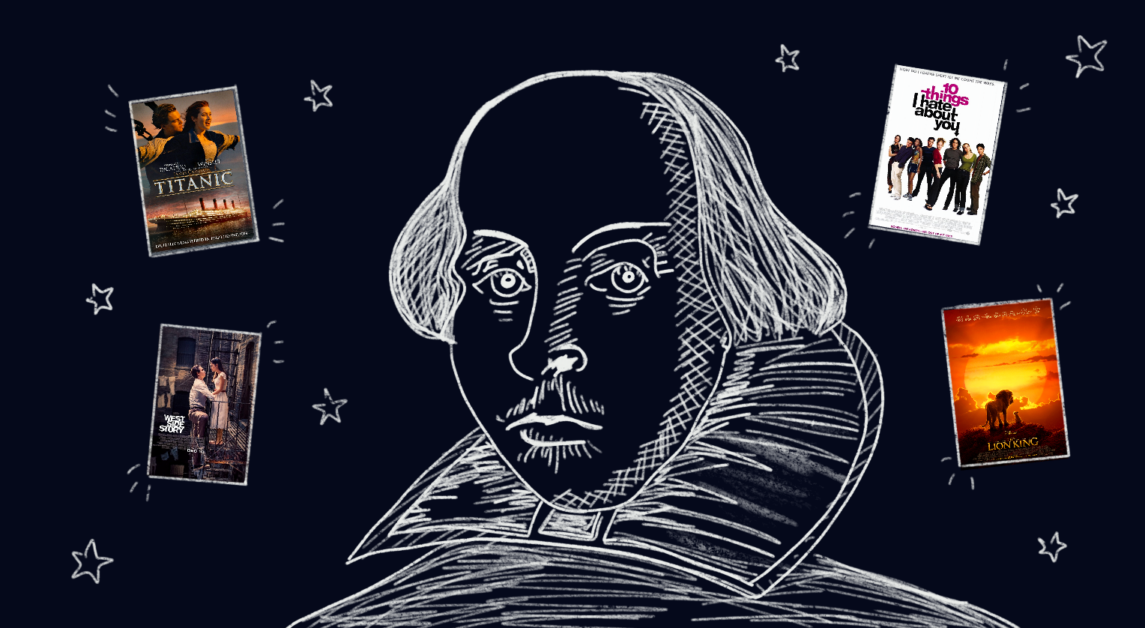My hand cramped as the 45-minute timer disrupted the silence of the classroom. With a couple of seconds to spare, I completed my essay analyzing the prevalence of power and authority in King Lear.
This wasn’t my first rodeo. I had tackled the grueling task of dissecting the themes and literary devices William Shakespeare concocted before. During high school, I was forced to read two of his tragedies, one of his comedies, and several—perhaps too many—of his sonnets.
The never-ending “thous,” “arts,” and “doths” sent my brain through endless loops. It reached a point where I cursed the literary gods for my grim fate of having to endure the torture of these various required readings.
The last thing on my mind was the permanent influence that Shakespeare has had on English literature.
No, this isn’t a revolutionary idea nor a theory backed by the scientific method. The fact that Shakespeare is the most influential writer in English literature is simply held to be the truth now.
With over 38 plays and 154 sonnets, Shakespeare has stood the test of time, his works considered “classics.” His relevance, however, far outshines the classrooms of high school and academic scholars.
If we look at writing pre- and post-Shakespeare, it’s clear that he created a significant shift in literature. Not only did Shakespeare pioneer the development of modern-day English as hundreds of his original phrases continue to be spoken today, but also his characters and plot points have served as archetypes, providing framework and inspiration for modern-day writers.
The first time I encountered Shakespearean writing in pop culture was in the movie 10 Things I Hate About You. A modern adaptation of Shakespeare’s The Taming of the Shrew, the story follows two sisters in high school in their attempts to find love in a materialistic and vain world.
In both the film and Shakespeare’s play, a man is paid to date the abrasive, untameable sister in order for her younger sister, Bianca, to have a boyfriend.
The movie even goes as far as to maintain similar archetypes for the sisters. Foiling each other throughout both works, the older sister is found to be undesirable for men, as she is too callous and smart, while her sister finds no trouble obtaining suitors due to her attractiveness and charisma.
At first glance, one’s eyes may skim over the Shakespearean literary nods throughout the movie. Whether it be the foils, comedic aspects, or the characters discussing Shakespeare throughout the movie, this modernization of the play shows how Shakespeare’s works have extended beyond direct adaptations.
This isn’t the first instance of this happening either. Disney’s The Lion King is loosely based on Hamlet, and Romeo and Juliet has provided thematic inspiration for blockbusters like Titanic and West Side Story.
Shakespeare has not only provided material for films, but his work has also established archetypes and themes that have reached other forms of media. From star-crossed lovers to betrayal and revenge, Shakespeare’s sonnets and themes have even influenced music, with rappers like Nas and Tupac creating new interpretations of his work.
It seems even at Boston College, we cannot escape the Shakespearean influence, with two of its recent productions both being modern adaptations. Inverness Unravels premiered earlier this month as a modern take on Shakespeare’s Macbeth, exploring themes of corruption and power throughout the play. BC Theatre’s spring production was even Shakespeare’s As You Like It, though set in modern-day California.
While Shakespeare’s vernacular looks much different from ours, his stories are generally easy to follow and continue to resonate in today’s society. This is precisely why Shakespeare’s writing has excelled beyond other writers of his time.
We may not have kings giving away their land to their daughters or fairies casting spells on young lovers, but Shakespeare successfully created a world where metaphors are timeless, his societal commentary still weaving through our modern lives.
It seems the common consensus for our generation is to discredit Shakespeare’s work, banishing the lessons we were given about him to a dim corner in our brain to collect dust. Instead, we should look at his work with more appreciation. His brilliance constantly surrounds us, from the phrases we’ve grown to use to the shows and films we love.
Whether you’ve been told that you “wear your heart on your sleeve” after experiencing troubles with dating, or have muttered “seems Greek to me” while looking at your calculus homework, around every corner, Shakespeare continues to live and breathe.





Leave a Reply